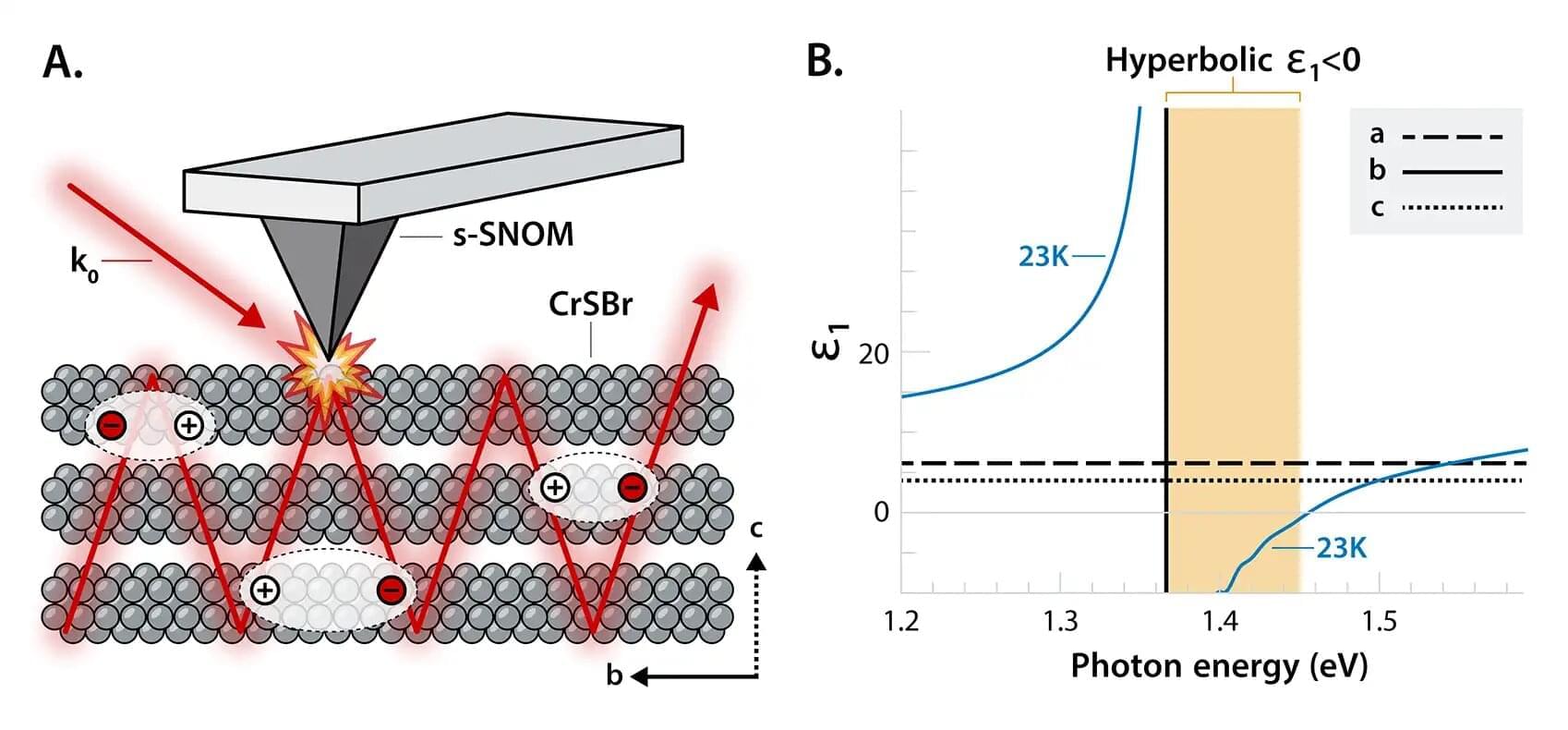The ability to move electron-hole pairs—called excitons—in desired directions is important for generating electricity and creating fuels. This happens naturally in photosynthesis, making it a source of inspiration to researchers innovating optoelectronic devices.
Strong coupling between light and excitons generates bosonic quasiparticles called polaritons that express unique properties that positively affect device performance.
Researchers observed steady-state hyperbolic exciton polaritons (HEPs)—exotic kinds of exciton polaritons with attractive properties—in the van der Waals magnet, chromium sulfide bromide (CrSBr).








